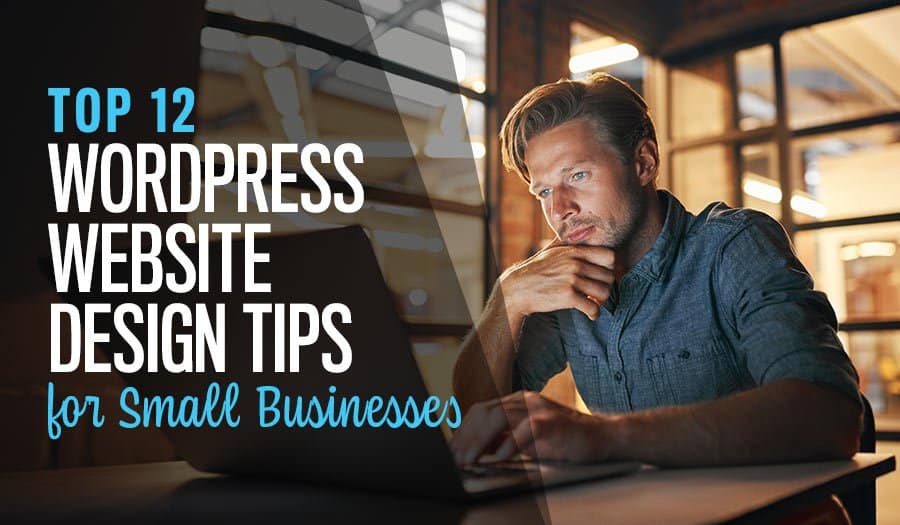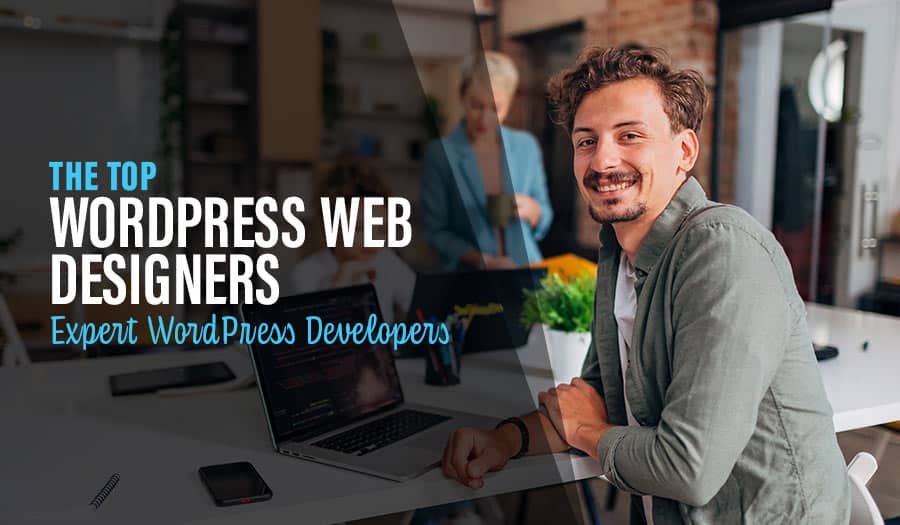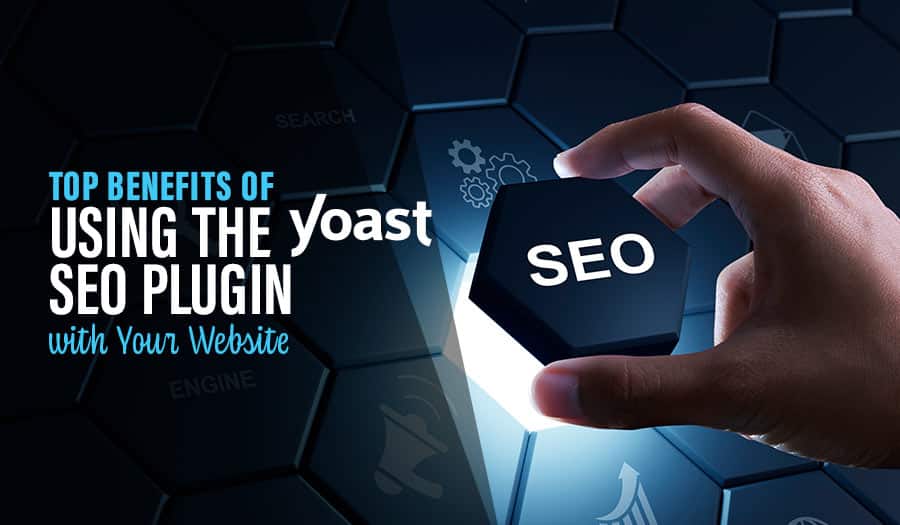Building an online presence for your brand or business is easier said than done. Most small businesses have to carefully balance the need to be and post everywhere. The restrictions of a small team and a modest budget can keep you from using the same extravagant tactics as your enterprise competition. Fortunately, small businesses today have more than a few tricks up their sleeves in free, affordable, and accessible online resources.
One such resource is the WordPress website. WordPress is fantastically affordable, modular, and easy to admin in the day-to-day through a backend dashboard. More importantly, WordPress is the path for any business to quickly have a working company website. Of course, most small businesses don’t spring forth knowing how to rock a WordPress strategy. That’s what we’re here for.
The following tips are best practices and success hacks for small businesses using WordPress for the company website.
12 WordPress Web Design Tips for Small Businesses
- Don’t Limit Yourself Conceptually
- Know How to Verify a Plugin or Theme
- Mobile Responsive is a Must
- Constantly Update Your Security Settings
- Don’t Be Afraid to Commission a Custom Theme or Plugin
- Select a Server Host Like a Business Partner
- Find Ideas and Support in the Forums
- Regularly Test Your Website from an Outside Account
- Integrate Your Automated Marketing
- Compress and Optimise Your Images
- Create an Internal Network of Links
- Always be Analysing
1. Don’t Limit Yourself Conceptually
WordPress started as a CMS, a content management system for blogging, but it goes so much further now. Your WordPress website doesn’t have to be limited to landing pages and a blog of content. With the right modules and expert integration, your company’s WordPress site could be anything you need. If your company needs an e-commerce platform, you can build that in. That can be added if you need a live menu for delivery services. If you need to integrate your VOIP system, even this can be done with the right API.
Make a list of the features that you want on your website. There’s a good chance you can find a quality, trustworthy plugin to add each feature you want as part of your WordPress website. The great thing is that WordPress is modular, and there are plugins for everything from back-end security to building an e-commerce store.
2. Know How to Verify a Plugin or Theme
There is likely a plugin for everything your website needs, but choosing which plugin to use is vital. Many plugins are made by skilled, professional teams who are accountable for their work and keep those plugins safe. However, WordPress plugins are an open market, which means that anyone can make a plugin and submit it, including hackers and unskilled amateurs. It is well-known that some plugins contain malware or, even if they are entirely clean, leave a backdoor open for a hacker or their malware to enter once installed.
This means every small business needs to know how to identify and verify plugins that are safe to use and built by reputable teams who use software structure and security best practices. Strong plugins make a strong website, and the opposite is also true.
3. Mobile Responsive is a Must
When designing your website and choosing your theme, it is essential that your site be mobile-responsive. Responsive design means that the website can re-size itself and rearrange the elements for any screen size, from the smallest phone (maybe even a smartwatch) up to the largest tablet screen, in addition to the usual resolutions for computer monitors.
Not only should your design be officially responsive, but you should have a team test it with real and simulated devices to ensure that it really does present well, functionally, and attractively in every possible resolution.
4. Constantly Update Your Security Settings
When you build your WordPress site, be sure to recalibrate every security plugin and every individual plugin’s security settings along with your site-wide defences. This is necessary to protect your security settings and the security features of any plugins. Unconfigured, you might be in more danger than not having the plugins at all, because hackers know the default settings.
After that, make sure to keep your thumb on security changes and updates. Audit and update your security settings regularly. Every time you update a plugin (any plugin) do an audit to see if default settings reset, as they often do. Don’t let default security settings or a reset plugin open your website to security holes.
5. Don’t Be Afraid to Commission a Custom Theme or Plugin
In all the marketplace, you might not find the perfect theme for your website or the right plugin for your desired feature set. The more specific and clear your website design is, the more likely this is to be true. That’s OK. You don’t have to find what you need in the marketplace because WordPress is open-source, which means that anyone can make their own custom theme or plugin from the available code.
Not a web developer? Hire a programmer, designer, or WordPress team. For a custom theme, your developer can make a unique appearance, style, and page flow for your website that will not be seen anywhere else on the internet. For plugins, a skilled developer can add new features, blend features you want, and provide the interface you need for any website function.
6. Select a Server Host Like a Business Partner
Of course, the WordPress code isn’t the only aspect of your website. Those WordPress files and your database are stored on a server that hosts the website itself, making it accessible to the world. Modern companies host their websites on cloud servers, meaning that you need to select a server host. This server host owns the physical and virtual devices that your website will be hosted on. They will have some influence on your website’s speed and performance. And if your server host is hacked, their security will also determine if your website is hacked.
So pick your server provider carefully. Select them with the same diligence you would a new business partner. Their reputation might be your reputation, and their cybersecurity can become your website security. Choose a reputable, reliable, and service-responsive host that you can trust with your website, and keep backups of your own separate from the hosting service.
7. Find Ideas and Support in the Forums
Like any software, your WordPress website might not always work perfectly. Especially when you’re trying something new or updating legacy plugins. One of the greatest things about WordPress for a small business is that you can often find the answers on your own. If you need a quick fix to an error message or advice on how to reconfigure a plugin after an update, you can often lean on the community of millions of fellow business owners and developers who all also use the WordPress platform the top business plugins.
From ideas on how to best use your plugins to help solve minor technical problems, the WordPress community is a great no-cost resource for anyone good at searching and asking for help in the many forums dedicated to the subject.
8. Regularly Test Your Website from an Outside Account
WordPress is incredibly popular among businesses of all stripes, but this also makes WordPress a temptation for website hackers. There are several common types of WordPress hack that are well-known and, as a result, we know how to defend against them. One of the classic ways to hide a hack (and allow it to continue) is to mask it from the administrators of the site. So when you log in, everything looks great. But when a user logs in, they get the hacked site.
The way to protect your small business’ website from this kind of attack is to have a few dummy accounts. Make accounts that are not administrators with generic g-mail email addresses. Then visit and explore your site with one of these temporary accounts. Now you are seeing what customers see and will spot any hacks designed to be hidden from the admins.
9. Integrate Your Automated Marketing
WordPress was built for integration. Automated marketing is one of the best things to integrate into your WordPress site. Software that markets programmatically can be hooked into and even made a part of your website. You can alter up-selling and cross-selling content based on a user’s buying and shopping history. You can use analytics from the website to fuel your marketing campaigns. There’s no limit to the creative ways you can pair a good website with automated marketing.
10. Compress and Optimise Your Images
Images are among the largest, heaviest files on your website. If your page loads slowly, there’s a good chance that images are to blame. Images that load incorrectly can also damage your customer’s view of the website and, in effect, the company. The last thing you want is for a clunky image that loads slowly or re-spaces the page when it finally loads to drive away your online visitors.
So compress your images to ensure they are not too big and tailor how they load. It is better for an image to load sized-yet-fuzzy instead of clunky.
11. Create an Internal Network of Links
Your internal links are as important as your external links, sometimes more. Make the most of your WordPress website by putting the structure to use. Create a network of internal links throughout your website. Any time you mention a service, a product, or a topic covered in your blog, link it. Provide useful links that readers can use to both enhance their experience and navigate freely around your website.
12. Always be Analysing
Finally, don’t forget to hook up your analytics. Google Analytics is only the beginning. You can connect analytic plugins and integrate analysis software through APIs. Put that data to use. Your website is the centre of your online business presence, especially for how you interface with customers. Analytics are your path to knowing what’s up, down to the numbers and making improvements that you can prove when those numbers go up.
WordPress Web Design Tips from the WordPress Experts
Small businesses have a great deal to gain from choosing to build a website with WordPress. From accessible plugins to a large supportive community, the sky’s the limit when you’re developing with the largest website platform in the world. The best part is that you don’t need to be a website developer on the team to develop a great, custom, secured WordPress website. We would be proud to be your entire web development department, from the first concept of your website to the regular security updates and maintenance to keep it humming with customer activity. Contact us today to consult on your website plans.
Speak to the WordPress experts and take your business to the next level with a Pixel Fish Website.
Check out some of our latest Website Design projects.
Further Reading
10 Top Reasons to use Gravity Forms
8 Social Media Plugins for Your WordPress Website
Website platform review: Wix vs WordPress – Which is right for you?
Read More
5 Reasons Quality Copywriting Matters for Your Website
Why Your Website Should Start With Why
Why Your Business Needs Social Media Website Integration
Understanding SEO vs SEM vs SMM
5 Steps on How to Optimise Your Website Images for Online Success
Top 8 Advanced WordPress Features and Plugins to Beat Your Competition
9 Business Web Design Package Features Your New Website Must Have
Hidden Hacks: How to Check if Your WordPress Website Has Been Hacked
Is your WordPress Hacked? Here are 5 Potential Reasons
12 Tactics to Increase WordPress Website Speed
Website disaster: The Business Impacts of a Hacked Website
Unbeatable Benefits of WordPress for Business Owners
How to Create a Landing Page for Your Small Business: A Comprehensive Guide



